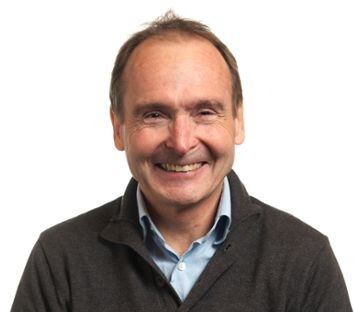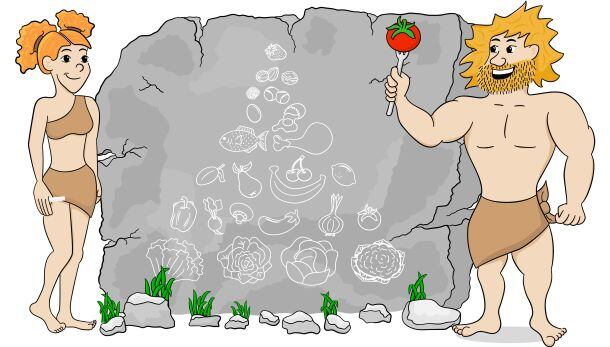Our hunter-gatherer ancestors certainly exercised a lot more than we did, and they weren’t eating Twinkies, said Bruce German PhD, Professor of Food Chemistry at UC Davis and the Director of the Foods for Health Institute located in the Robert Mondavi Institute.
But it doesn’t necessarily follow that what they ate represents an ‘optimal’ eating pattern for humans today, or that because some people have trouble handling grains or dairy – relatively more recent introductions to the human diet - that we are not, collectively, as a species, ‘supposed’ to eat them, he pointed out.
Are we ‘designed’ to drink cow’s milk?
Take lactose intolerance. Some Paleo enthusiasts spurn dairy milk in part because they argue ‘We are not supposed to drink the milk from other animals,’ said Dr German, who was speaking to FoodNavigator-USA as part of our Paleo trends special edition. But the notion that we are not ‘designed’ to drink milk betrays a lack of understanding of how natural selection works, he argued.
If you want to know what it makes sense to eat from an evolutionary perspective, “then evolution does have some instructions in that whether you’re looking at bacteria, mold, insects, plants, or animals, one of the most profound selective pressures is to avoid being eaten,” he noted. “So plants, for example, have to fight predators off with toxins because they can’t run away. But we've found ways of reducing things like phytic acid [eg. by making fermented dough and baking, or sprouting].
“In this context, it’s fascinating to think about lactation; where mothers literally dissolve themselves to make a complete and comprehensive nourishing diet
[milk] for their infants,” he added.
By normal genetic standards, they are mutants!
At some point, there’s a weaning process, he said, “and at that point there is a loss of the lactase enzyme [which breaks down lactose - milk sugar - so you can digest it] as once you’re weaned you technically don’t need lactase, so mammals are lactase non persistent, their lactase gene shuts off around weaning.”
But does this mean that consuming milk from other species after we’ve been weaned off our mother’s milk is harmful to our health? Or that we haven’t ‘evolved’ to consume dairy products beyond infancy?
Not necessarily, he said. In you look at human evolution, the story is more nuanced: “As far as we can tell, humans started domesticating ruminants and maintaining them for their milk in four places in the world, two places in North Africa one in West India and one in Northern Europe. And what’s striking about the genetics of those humans, is that those who survived in those places have an astonishing penetration of a remarkable mutation.
“The regulatory activity of the lactase gene has been in essence altered and these people continue to make lactase enzyme their entire lives [which means they can happily process cow’s milk], so by normal genetic standards, they are mutants!
“Their super power is that they can digest lactose, and people that didn’t have this mutation in those areas didn’t survive; that’s how evolution works. In reality, it’s one of the most selective advantaged genes in humans over the past 15,000 years; people that could digest lactase survived. So in that context, can we really say that milk and dairy are ‘toxic’ to humans?”
A study published in the journal Nature in 2015 revealed that a gene mutation controlling an enzyme [lactase] enabling humans to digest milk became widespread in under 3,000 years – a blink of an eye in evolutionary terms – while people in areas with starch as a major part of the diet evolved to have multiple copies of a gene that helps them digest it better.
Lactose intolerance
If you focus your attention on people that do not have this mutation and can’t digest lactose, meanwhile, the story is equally nuanced, he said.
“If you don’t digest lactose, it continues to move down the intestine and becomes food for bacteria. And then it sort of becomes a crap shoot, not because of your genetics, but because of the bacterial populations you have acquired. Some people are lucky in that they have acquired certain bacteria that when they digest lactose, they end up making metabolites that are perfectly benign.
“Others have bacteria that when they digest lactose they make various gases and endotoxins and they get bloating and gas or diarrhea, but that’s really a bacterial consequence, it's not about lactose, per se.”
One size fits all dietary advice will become a thing of the past
So what’s the takeaway here?
Simply that we’re not all the same, and that prescriptive population-wide dietary advice - telling everyone to eat dairy/grains/any other food group or avoid them, whether it’s from the Paleo community, or even that which we see in the Dietary Guidelines for Americans, is not the future for nutritional science, he argued.
"I'd like scientists to think not about what we used to eat 10,000 years ago, but what we could eat tomorrow to really optimise our health."
“We want something better, something personalized and precise. When we get in a car now we just tap the destination into Google Maps and off we go, and that’s freely available to everyone. It tells me what the traffic is like on the way, and how long it will take me to get there.
“What’s astonishing is that this hasn’t happened yet to diet, but it will happen very soon. When they think about nutrition and gut bacteria, I'd like scientists to think not about what we used to eat 10,000 years ago, but to think about what we could eat tomorrow to really optimise our health."
Is there such thing as the 'Paleo diet'?

According to Dr German: “You can make a compelling case that our environment has changed dramatically and profoundly, and in many respects we are not completely adapted to it.
“But to pretend that we know enough to say we can selectively remove certain parts of our diet” by modeling our behavior on that of our Paleolithic ancestors is somewhat presumptuous, he added.
On a more practical level, pinning down what our 'Paleo' predecessors actually ate with any certainty is pretty tough, as their diet would have varied according to where they were and what was available at the time (some likely ate mostly fruits, nuts, leaves and insects, while others may have had more meat). And let's not forget that the Paleolithic era covers a huge time period: 2.6 million+ years ago, to around 10-12,000 years ago.
Moreover, our ancestors died young (“Life was short and brutal”), so we don’t know what shape they would have been in had they made it into ripe old age. Moreover, we have no way of knowing if they were deficient in any nutrients, although given the local and seasonal nature of their diets, deficiencies seem likely.

Definitions vary, but most advocates of the Paleo diet think the dietary rot set in once humans stopped hunting and gathering and started to grow crops and raise animals for food. So grains, legumes (soybeans, peanuts, chickpeas), and dairy are typically off limits (although some Paleo fans say grass-fed dairy is OK).
Click HERE to read more perspectives on the Paleo diet.
